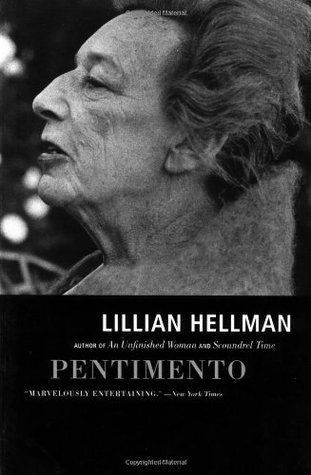
Pentimento
Book Description
Secrets lurk beneath the surface of family ties, where old loyalties clash with harsh truths. As the past unravels, the intricate web of betrayal and love entangles a fierce woman determined to reclaim her identity. Hellman's 'Pentimento' captivates with its raw emotional depth, revealing the struggles of connection amidst a backdrop of societal change. Relationships fracture and mend in this gripping exploration of memory and regret, leaving scars that resonate through generations. With every turn of the page, the question looms: how far will one go to confront the ghosts of their past?
Quick Book Summary
"Pentimento" by Lillian Hellman is a memoir that delves into the hazy boundaries between truth, memory, and narrative. Through a series of portraits and recollections, Hellman explores her relationships with prominent figures in her life, notably the enigmatic Julia, examining the ways loyalty, betrayal, and love intertwine. The book's title refers to a painting technique where old images are painted over but eventually resurface—an apt metaphor for Hellman's examination of her past. Reflecting on her struggles as a woman in a male-dominated society and the moral complexities of political upheaval, Hellman delivers a nuanced meditation on the persistence of regret and the elusive nature of self-knowledge. Her writing captures both the fragility and resilience of human connection amid seismic social change.
Summary of Key Ideas
Table of Contents
Memory and Subjectivity
Hellman’s memoir, "Pentimento," unravels the shifting layers of recollection to examine how personal history intertwines with broader societal events. By likening memory to a painter’s pentimento—where former images bleed through newer ones—she suggests that the stories we tell about ourselves are inherently ambiguous, shaped as much by forgetting as by remembering. Her narrative style is candid yet contemplative, inviting readers to consider the unreliability and artistry of memoir itself.
Loyalty, Betrayal, and Moral Complexity
Central to the book is Hellman’s portrait of important relationships, especially the mysterious friendship with Julia, a courageous anti-fascist. Through these vignettes, Hellman explores the conflicting impulses of loyalty, betrayal, and love. Each connection is rendered with emotional complexity, revealing how allegiance can both uplift and destroy. The web of trust and deception she describes is emblematic of the larger moral dilemmas that defined her era and personal journey.
Women’s Identity and Autonomy
The memoir chronicles Hellman’s struggle to assert herself as an independent, creative woman in a society dominated by patriarchal norms. She details the challenges of maintaining her voice amid expectations and prejudices, highlighting the sacrifices and courage required to pursue artistic and personal autonomy. These reflections offer insight into the evolving role of women in the twentieth century, touching on themes of resilience, ambition, and the quest for authenticity.
The Impact of Historical and Political Change
Hellman’s recollections are set against the backdrop of political and historical upheaval—namely, the rise of fascism, World War II, and the oppressive climate of McCarthyism in America. These forces shape, and often fracture, the relationships depicted in the memoir, infusing personal stories with urgency and consequence. Hellman examines the costs of resistance and complicity, considering how individual choices reverberate through society and across generations.
The Enduring Power of Relationships
Ultimately, "Pentimento" is a deeply introspective work that emphasizes the persistent influence of past relationships. Hellman confronts her regrets and celebrates moments of reconciliation, recognizing the indelible marks left by love and loss. Her narrative invites readers to reflect on how memory, while imperfect, holds the power to illuminate hidden truths and offer both solace and unrest. The memoir stands as a testament to the enduring connections that define us and the courage required to face the ghosts of our past.
Download This Summary
Get a free PDF of this summary instantly — no email required.





